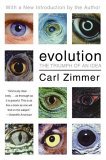My colleague Dr. Fred Schreiber (Dept. of Biology @ CSU Fresno) submitted the following op-ed essay to the Bee, which, disappointingly but unsurprisingly, did not get published last week. Well, you can read it here instead:
____________________________
Op-ed to the Bee
by Fred Schreiber
Op-ed to the Bee
by Fred Schreiber
Charles Darwin was born on February 12, 1809, making this year the two hundredth anniversary of his birth. By an accident of timing in Darwin’s career, this is also the one hundred and fiftieth anniversary of his most famous publication, “On the Origin of Species”. So this year biologists and many others worldwide are celebrating one of our most careful observers of nature and, certainly, one of our seminal thinkers.
What did Darwin contribute to biology and society? We can answer by describing two of his major ideas.
First, the publication of “On the Origin of Species” quickly convinced biologists that living things are connected by the branches of a tree-like lineage. In other words, they evolved from common ancestors. This simple concept has had a profound influence over how we view the world and ourselves in it. We are related, not only to the apes, but also to birds, beetles, buttercups, and bacteria. We are simply one of many twigs on the tree of life.
Since Darwin, paleontologists have traced the fossil record and constructed the lineage of evolution in the geologic record. Similarly, morphologists and physiologists have traced the common patterns of form, function and metabolism among organisms.
Most recently, molecular biologists have found that DNA contains a record of the gradual changes in organisms as they evolved. For example, similar species such as humans, dogs and other mammals share about 90 per cent of the same genes, whereas more distantly related organisms, such as the yeast cell, share about 50 per cent of their genes with humans. Thus, half of our genes are found in the organism that we use for brewing beer and raising bread.
Second, Darwin proposed a mechanism for how organisms change over time, natural selection. This idea had a rougher road to acceptance. Only after the development of population genetics were most biologists convinced that Darwin was correct. This didn’t happen until around 1940, eighty years after Darwin first proposed the idea. Biologists, like all scientists, are a tough audience until they see enough supporting data.
But why do we now consider evolution to be so central to modern biology? Because it integrates the entire discipline. Evolution is to biology as the periodic table is to chemistry, plate tectonics is to geology and quantum mechanics is to physics. None of these disciplines make any sense without these core ideas.
Natural selection helps us understand why there are thousands of naturally occurring varieties of potatoes in Peru, why and how bacteria become resistant to antibiotics and why the genes for antibiotic resistance are widespread in soil bacteria. Evolution helps us understand why heart disease, cancer, and diabetes have replaced death due to infectious disease as nutrition and medicine have improved over the past century.
Natural selection makes sense of much of modern medicine. We can trace the evolution of the AIDS virus and study the gradual adaptation of the virus to infecting humans. Just as we explain the origin of antibiotic resistance in bacteria, we can explain why antiviral drugs work over the short term but become ineffective over the long term. Our knowledge of how viruses adapt is the basis for great concern about the H5N1 strain of the influenza virus currently jumping from domestic birds to humans in the Far East. If the virus evolves to be easily transmitted from person to person, we could have a worldwide flu pandemic. Natural selection helps us to understand why parts of Europe have a relatively low rate of diabetes and other human populations have a disastrously high rate of the disease.
The best scientific explanation for species origins is evolution by means of natural selection. Alternative ideas have been tested over the past two centuries, including special creation and an early version of intelligent design. The overwhelming majority of biologists long ago rejected these alternates. They have no explanatory power, no credible evidence, and have long been regarded as non-science, as they invoke supernatural causation.
The Biology Department at Fresno State has an evolution course that is taught as a capstone course for our majors, but evolutionary principles are used in all of our courses. It is impossible to explain biology to our students without it. We could no more teach biology without evolution than we could without physiology, ecology or genetics.
Finally, there are some ideas like the periodic table and evolution that now have so much evidence in their favor, we must use them. It has become unlikely that either biology or chemistry will find something better. Our sciences make no sense without these organizing principles.













0 comments:
Post a Comment